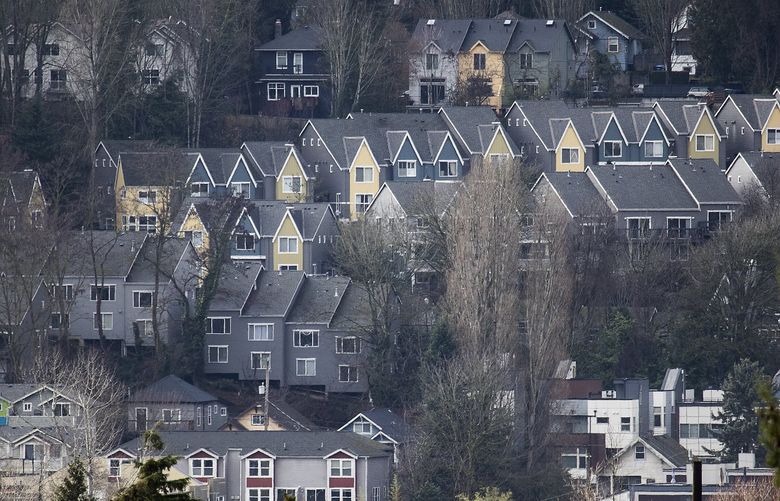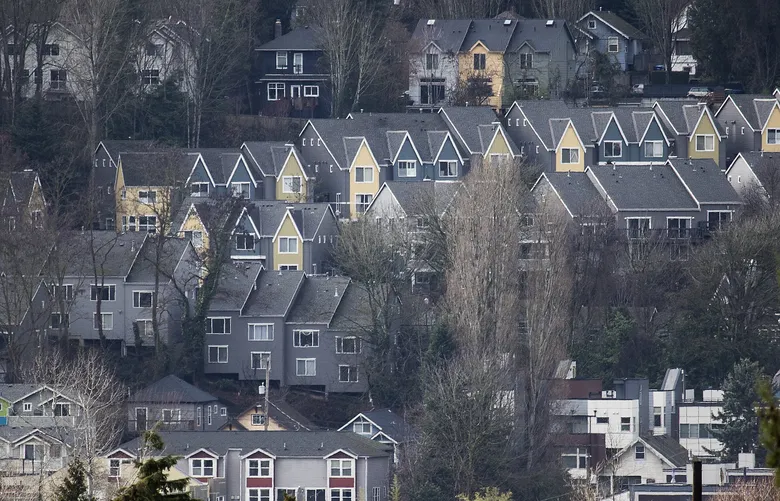Article Summary:

Just how much new construction is necessary to meet our region’s housing shortage? King County would need to see nearly 17,000 new homes built every year for the next two decades to keep up with demand, according to new state projections.
And clearing the way for private developers to build thousands more market-rate homes will not be enough to meet that need. More than half of the new homes need to be affordable to people making less than 50% of area median income, or $45,300 for a single person in King County, the state Department of Commerce said Thursday.
The need for new housing spans the entire state. All told, Washington will need 1.1 million new homes over the next 20 years, or about 55,000 per year, according to the projections.
That’s a higher level of building than the state has seen in recent years. In the last decade, Census data shows Washington has added an average of about 35,000 housing units per year. In 2021, the state added about 43,000 units.
Washington will also need more than 91,000 additional units of emergency housing for people experiencing homelessness, according to the projections.
“I’m not surprised by the numbers,” said Metropolitan King County Councilmember Claudia Balducci, who has served on county task forces focused on affordable housing. But, she added, “they’re daunting numbers.”
The projections released Thursday are part of new requirements that cities “plan and accommodate” for housing growth at all income levels. Gov. Jay Inslee and Democrats in Olympia have cited the need for new housing as they push for allowing more duplexes, fourplexes and six-plexes in single-family neighborhoods. That bill, HB 1110, is awaiting a vote in the state House of Representatives.
Affordable housing advocates say the state must also boost funding for subsidized rentals and homeownership opportunities. Three in 10 Washington households are cost-burdened, meaning they spend more than 30% of their income on housing, according to federal data from 2015-2019 that includes homeowners and renters.
Given the demand, “many communities will need to change the way they plan for housing and plan for more apartments, condominiums, moderate density housing such as middle housing, and accessory dwelling units,” Dave Andersen, managing director of the Department of Commerce’s growth management services unit, said in a statement.
The need for new homes will cross all income levels.
King County, where the median price for a detached single-family home or townhouse is more than $780,000, will need nearly 340,000 new homes total over the next 20 years. That includes about 60,000 shelter beds, 179,000 homes for people making less than half of area median income and 95,000 homes for people making 120% of area median income (about $109,000 for a single person).
Cities across the region are likely to see more growth. According to preliminary county projections, Seattle will need about 112,000 total new units and Bellevue will need about 35,000.
Of the more affordable homes countywide, the state estimates about 43,000 will need to be permanent supportive housing, subsidized rentals that include services for people who were previously homeless and typically rely on government funding to build. That funding will need to come from state and federal sources, Balducci said.
“We know that we are way behind in producing enough housing to meet the need in our county,” Balducci said. “And we also know that we are particularly far behind in meeting the need for housing at the lower ends of affordability.”
The projections rely on “medium” population projections from the state. If Washington’s population instead grew to the highest end of the state’s estimates, King County would need more than 600,000 new units by 2044.



